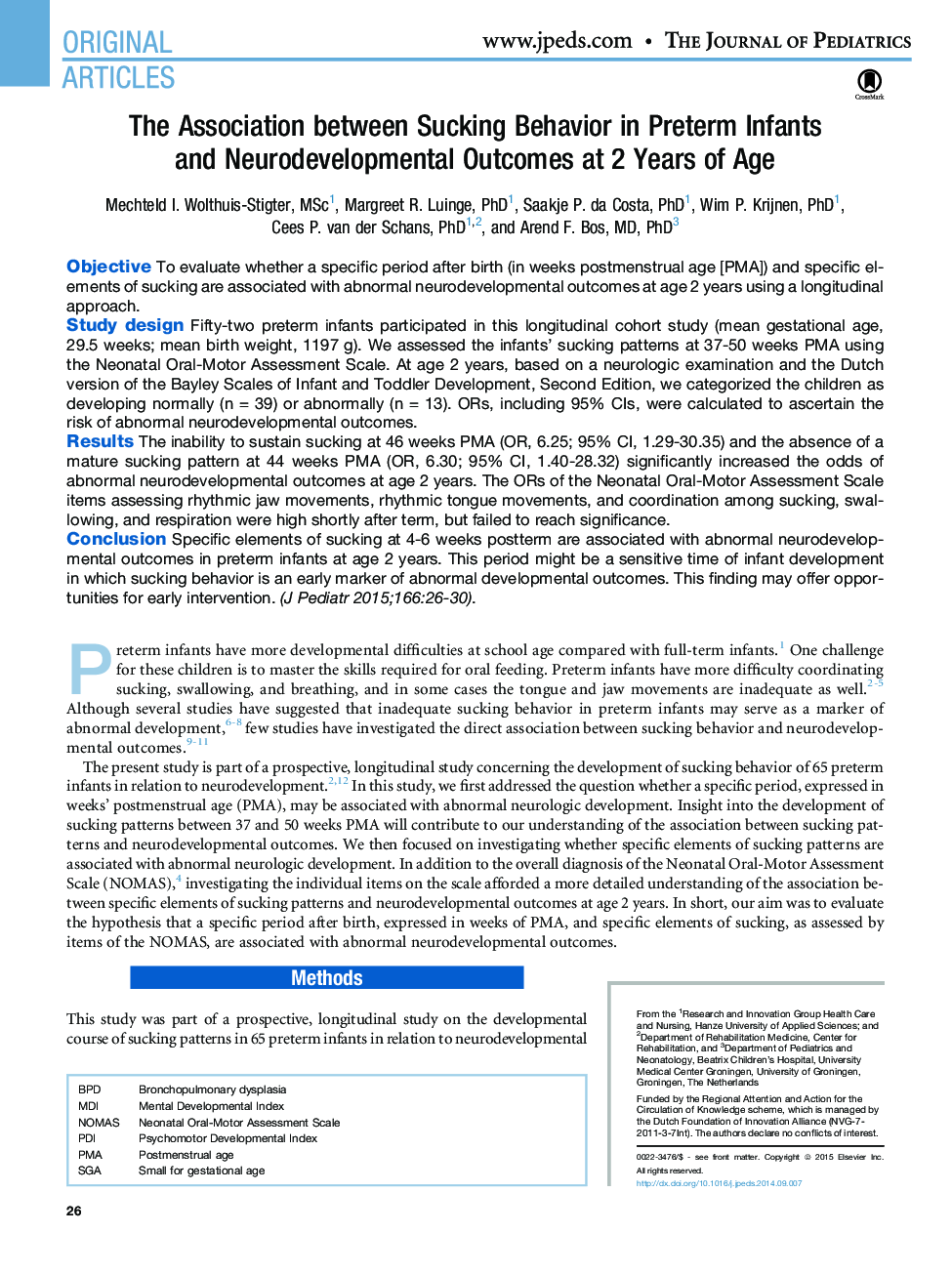| کد مقاله | کد نشریه | سال انتشار | مقاله انگلیسی | نسخه تمام متن |
|---|---|---|---|---|
| 6220008 | 1607447 | 2015 | 6 صفحه PDF | دانلود رایگان |

ObjectiveTo evaluate whether a specific period after birth (in weeks postmenstrual age [PMA]) and specific elements of sucking are associated with abnormal neurodevelopmental outcomes at age 2 years using a longitudinal approach.Study designFifty-two preterm infants participated in this longitudinal cohort study (mean gestational age, 29.5 weeks; mean birth weight, 1197 g). We assessed the infants' sucking patterns at 37-50 weeks PMA using the Neonatal Oral-Motor Assessment Scale. At age 2 years, based on a neurologic examination and the Dutch version of the Bayley Scales of Infant and Toddler Development, Second Edition, we categorized the children as developing normally (n = 39) or abnormally (n = 13). ORs, including 95% CIs, were calculated to ascertain the risk of abnormal neurodevelopmental outcomes.ResultsThe inability to sustain sucking at 46 weeks PMA (OR, 6.25; 95% CI, 1.29-30.35) and the absence of a mature sucking pattern at 44 weeks PMA (OR, 6.30; 95% CI, 1.40-28.32) significantly increased the odds of abnormal neurodevelopmental outcomes at age 2 years. The ORs of the Neonatal Oral-Motor Assessment Scale items assessing rhythmic jaw movements, rhythmic tongue movements, and coordination among sucking, swallowing, and respiration were high shortly after term, but failed to reach significance.ConclusionSpecific elements of sucking at 4-6 weeks postterm are associated with abnormal neurodevelopmental outcomes in preterm infants at age 2 years. This period might be a sensitive time of infant development in which sucking behavior is an early marker of abnormal developmental outcomes. This finding may offer opportunities for early intervention.
Journal: The Journal of Pediatrics - Volume 166, Issue 1, January 2015, Pages 26-30.e1